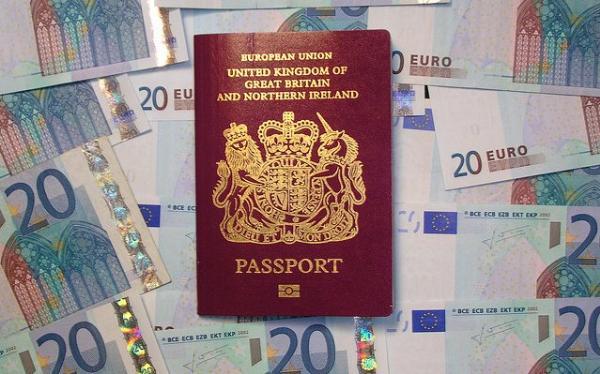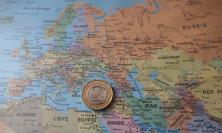‘I went to Brussels with one objective: to protect Britain’s national interest.’ So said David Cameron about his approach to the European Council in December 2011, but what does it mean to say that Britain has a ‘national interest’ on any particular issue? Tony Carroll seeks to answer this question, and looks at the UK’s current position with regard to Europe in light of modern understandings of the concepts of sovereignty and solidarity.
The current approach of the United Kingdom to the financial crisis in Europe trades upon an understanding of national interest that is unrealistic and regrettably selfish. To defend this position, it is drawing upon a narrative of sovereignty that has more to do with nostalgia for former glory than an approach that sees its present and future interests as tied to those of other countries in Europe. Whilst this apparent show of strength may be popular with some, indeed many in the United Kingdom, for our European neighbours it seems more like a childish tantrum than a mature political strategy.
A close look at just what is meant by national interests will demonstrate that the concern to defend them is legitimate, even if it raises questions about national identity. However, it is important to look too at how these interests and their protection relate to a contemporary understanding of sovereignty and the important, international value of solidarity, particularly as it is understood in the Catholic tradition. Let me begin by considering what we mean today by national interests.
National interests
National interests typically take the form at an aspirational level of a desire for health and prosperity, a concern for the defence of liberty in the pursuit of happiness, and the desire to serve the common good. Such interests are given form and structure when they are encoded in national constitutions. It is because it is believed to be in our interests that we defend the rule of law. It is because peace is better than war, and order better than chaos that intra- and inter-national solidarity is held up as a social and political value. Understood in this way, our interests make us proud to belong to a civilised nation. They join us to our neighbours within our own society and form the basis of wider relationships within societies of nations. Fundamentally, this understanding of national interests assumes that in pursuing my interests your interests are not hindered but promoted. A family of nations shares in the same fundamental concerns, the same basic interests, though each nation will express these in its own language and through its own culture. Our particular interests are bound together by a general orientation towards human flourishing, which no matter how different we may be is anchored in a common humanity which as a species we share in. In other words, in outlining what is meant by national interests, we are inevitably steered towards outlining a vision of the human person in relation with others, the others in this case being those of the same nation. But we need to take a step back and ask a further question: what do we mean by ‘the nation’ today?
One way of speaking of a nation is to refer to a people who share in at least some of the characteristics of having a common story. That is to say, they share in a history embodied in family ties, founding events and myths; they may share a common language and culture, which makes them distinctive; they may live in a bounded territory ruled by a state, own the same passport and adopt the same constitution. In short, a nation is a group of people who in one way or another are bound together. The problem, of course, is that today, allegiances are not necessarily geographically determined as they were in earlier times when people were less mobile. Many people move around the globe today in search of a job and greater prosperity, of security and an orderly environment within which to bring up their family, of a place to practice their religion freely and the liberty to live a lifestyle of their choice. In such a mobile context, networks of solidarity are formed that sit uneasily with former understandings of the nation which were much more homogeneous. Whilst it is the case that some contemporary theories of the ‘death of the nation state’ may have been premature, it seems as if the nation may well have become a popular myth that governments are forced to represent and nostalgia perpetuates, but which present-day circumstances seem often to undermine. If a nation is a group of people bound together, it seems as if societies in the United Kingdom are asking themselves a fundamental question which goes to the very heart of this social bond: are we really in this together?
If countries like the United Kingdom are asking themselves what makes our social bond, then the current attitude to Europe of the government and of some in the country is not so surprising. In times of uncertainty or of confusion over identity, one way to move things forward is to go back to the past: to allow a nostalgic return to a former imagined place of security and identity; to build identity on exclusion or even demonization of the other whether it be the bureaucrats in Brussels or the impending threat of a loss of sovereignty to the European super state. The reassertion of ‘bull-dog Britain’ may well represent the fear of such a loss of identity in a time when the ‘we’ who are meant to be in it together are not so sure of who the ‘we’ really are.
Faced with a European Union which seeks to forge ever-closer bonds, the separationist strategy of the United Kingdom seems increasingly anomalous and one is forced to ask the question, what are the causes of such a difference? If the degree of social solidarity in the United Kingdom was very high, one could perhaps understand this option; but following a summer of social unrest, increasing inequalities between the rich and the poor, a real question of whether Scotland will remain within the United Kingdom, and large scale civil protests over pension reforms, it seems as if social bonds within the United Kingdom are weakening rather than strengthening. The parallels between domestic unrest and atomisation and an attitude of separationism with respect to Europe seem alarmingly clear. It is as if, both at home and abroad, the United Kingdom is going its own way: at home the gaps between sections of the United Kingdom, especially between the rich and the poor, have increased at alarming rates; and within Europe the isolation of the United Kingdom in recent times has seldom been more apparent. It is hard not to see a connection between these two dynamics. Centrifugal forces seem to be breaking the internal, social bonds which ought to form an orderly and cohesive United Kingdom, and also the external relations with its European neighbours who are forging every closer links with one another.
Sovereignty
A major part of the justification for the current separationist attitude with respect to Europe is the appeal to the concept of sovereignty. Being able to rule one’s own nation, to set fiscal policy and to regulate legislature is central to this. But again, we need to ask just which understanding of sovereignty is in place here in order to see how this fits in with the current narrative of separation.
Sovereignty is the ability of a people to govern itself and to make its own laws. This it can do through some form of representation as in a parliamentary system or, as the French philosopher Jean-Jacques Rousseau advocated, by choosing an executive in the form of magistrates to carry out the general will of the people. For Rousseau, sovereignty could not be represented because only the people as a whole can make the law. But in order for the law to be recognised and accepted as the general will of the people, Rousseau turned to the divinity of civil religion, the ‘common set of beliefs and practices’ through which people interpret their history and experience in the light of some transcendent reality, to ensure that this general will is authorised by a higher authority. Equally, Thomas Hobbes, the English philosopher advocated a sovereign monarch, a ‘mortal god’ who stood outside of the social order as the instance of sovereignty and the one who legislates for that society. The need for thinkers like Hobbes and Rousseau to invoke an authority external to society to underpin the internal legitimacy of sovereignty is doubly interesting when one considers attitudes with respect to sovereignty currently at play in the United Kingdom. Their ideas illustrate the point that any people, any nation, requires something greater than itself to secure the authority of its will; and at the same time, they reveal that no nation is ever completely independent or self-reliant.
Sovereignty is always a paradox. It both derives from the will of the people and at the same time it is necessary for it to be always transcended by some higher instance in order to secure its authority. It seems that the sacred underpinnings of sovereign power in the form of a civil religion undergird the modern conceptions of secular sovereignty, which are so central to discussions of the United Kingdom’s place in Europe. In the narrative of ‘losing sovereignty to Brussels’, both the will of the people as represented in the elected leaders and the ‘mortal god’ of the United Kingdom are being traded in for the will of unelected bureaucrats in Brussels and a different ‘mortal god’. The story of sovereignty as the totem of current British politics is the narrative of a people being enslaved and forced to worship alien gods; it is fundamentally an attack on the political theology which has forged the self-consciousness of a nation as a people, free under the one true God. As Rousseau noted well before Nietzsche, civil religion unites ‘the two heads of the eagle’: political and theological authority. No wonder the cry of a loss of sovereignty seems to be such a talisman in the current politics of the United Kingdom. It represents the symbolic unpicking of our very identity as a nation, or more precisely kingdom of nations, united under the one sovereign of Her Majesty the Queen.
Solidarity
Yet, it seems today as if identities are both expanding beyond the nation and contracting within the nation. On the one hand, they are expanding beyond the nation in that we belong to ever wider circles of people, whether in the European Union, the Commonwealth, or the international community. On the other hand, they are contracting within the nation as the rise of localism is regionalising our attachments to smaller social and communal sub-units. As a result, the nation seems at the same time both too big to provide any substantial sense of social bonding and too small to foster a universalism towards which a modern sense of solidarity points.
From a Catholic perspective this should come as little surprise. The nation has often had an ambiguous place within Catholic thinking and Catholicism itself has often been accused of subverting the nation, for example in late-nineteenth century attitudes to Ultramontanism (the privileging of papal over local authority) expressed in Germany. The Catholic instinct is to promote a universal solidarity that transcends national boundaries because the very make up of the Church is so international. One feels both part of a trans-national community of many peoples, cultures and languages, and at the same time rooted in the local community through attachments to the parishes and schools which, though strained in current times, still provide close ties for many families, and to civil society associations. Within the context of the United Kingdom, where Catholicism is not a national church, identification with the nation would seem to come much more naturally to a Protestant than a Catholic sensibility. As such, forming part of a wider community, such as the European Union, feels much less unusual given this Catholic internationalism and supra-nationalism.
Whilst it is clear that relations with the European Union and attitudes to the current financial crisis transcend denominational and religious affiliation within the United Kingdom, it seems that those who are more naturally inclined to a separationist United Kingdom will draw little succour from the Catholic tradition. In promoting a trans-national solidarity and identity, Catholicism will always be uneasy with forms of nationalism that seem to settle for circles of belonging that are based on lesser ‘mortal gods’.
Tony Carroll teaches philosophy and theology at Heythrop College, University of London and is author of Protestant Modernity: Weber, Secularisation, and Protestantism (University of Scranton Press, 2007).
More on the eurozone crisis on Thinking Faith:
![]() ‘Euro Lessons in Context‘ by William Mathews SJ
‘Euro Lessons in Context‘ by William Mathews SJ
![]() ‘The UK and the Eurozone‘ by Frank Turner SJ
‘The UK and the Eurozone‘ by Frank Turner SJ






